Polarisation, disinformation, trust: do young French people think like…
Past event In person

- Area of Expertise
- Democracy
Democracy

Senior Fellow for Peace, Security and Defence at Friends of Europe, and former Deputy Assistant Secretary General for Emerging Security Challenges at the North Atlantic Treaty Organization (NATO)
Many people of my generation have had a fascination with the United States, where admiration has often mingled with horror. This has not only derived from US foreign policy, where monumental accomplishments such as the post-1945 liberal order have gone side by side with epic failures such as Vietnam, Iraq and Afghanistan but also from the workings of US democracy at home. The freedoms enshrined in the US Constitution and its various amendments have been the envy of many other democracies, as have its strict separation of powers and system of checks and balances.
Beneath the formal interrelationships of the executive, judiciary and legislative branches, as well as the role of the fourth estate played by the powerful American media, there has long been a political culture in the United States that undermines the spirit – if not the law – of democracy: corruption in Congress and even on past occasions in the presidency; gerrymandering in electoral districts; the inability to come to terms with gun control and narcotics, despite the increasing destruction that guns and drug abuse are inflicting on American society; and the failure to integrate black Americans fully into the American mainstream, despite a century of efforts to try to do so. Like all democracies, that of the United States is a constantly imperfect work in progress, and it breaks down from time to time, as in the right-wing insurrection against the US Congress on 6 January 2021 to stop a legitimately elected president from taking office constitutionally. Yet, I have always believed in the basic robustness of US institutions and the overall ability of the US political system to throw out its rotten apples and heal itself.
The major cause of the gridlock in Washington is the spectacular decline of the Republican Party
This belief undoubtedly goes back to my second visit to the US as a student. I was in Washington DC in August 1974 and watched first-hand the resignation of President Richard Nixon at the end of the long saga known as the Watergate scandal. Despite his foreign policy successes, such as detente and arms control with the Soviet Union and ending US military involvement in Vietnam, not to speak of the decisive re-election in 1972, Nixon could not escape the sanction of Congress and the Supreme Court nor the mainstream US media for his paranoid mismanagement of the White House. He saw conspiracies against him from all directions and tried to cover up his role in the burglary of the Democratic Party offices in the Watergate building by his campaign team, the immortally named CREEP, or the Campaign for the Re-Election of the President. What struck me about the Congressional hearings into Watergate was the impartial dedication of the senators, particularly Democrat Sam Ervin, the chairman of the special committee of inquiry, and his Republican counterpart, Howard Baker, who came up with the celebrated line: “What did the President know and when did he know it?” These senators and their colleagues were more interested in getting to the facts and upholding the law than fighting partisan battles. I was impressed too by the competence and professionalism of Lawrence Walsh, the Special Legal Counsel and, of course, no one who remembers Watergate can ever forget the pioneering role of the Washington Post and its two famous investigative reporters, Carl Bernstein and Bob Woodward, nor their source within the White House, the aptly named ‘Deep Throat’. Watergate was a saga dragging on for two years, which was traumatic for Americans and their belief in the honesty and competence of their leaders, as well as the resilience of their institutions to face down an imperial presidency.
Yet, as soon as Nixon departed the White House lawn in his helicopter and Vice President Gerald Ford was sworn in, the country started to heal. Nixon was spared impeachment and even pardoned but the country moved on and even revived economically and militarily in the 1980s under the presidency of Ronald Reagan. Of course, American democracy was anything but perfect and presidents continued to misbehave as Reagan did in 1986 in the Iran Contra scandal and George W. Bush in 2003 in invading Iraq on the flimsiest of legal and strategic grounds. At the less strategic level, Bill Clinton was almost impeached in the 1990s for his dalliance with a White House intern. Yet as these “high crimes and misdemeanors” (to quote the Constitution) came to light, Congress with its unsparing investigations, the courts with their restraining verdicts and the court of public opinion at election time were on hand to sanction the wrongdoers and put the country back on an even keel. The United States was too important for the security of the European and Asian democracies, for the smooth functioning of the global economy and for the solution of global challenges such as pandemics, nuclear proliferation or climate change for its political system to collapse or sink into gridlock. Imperfect it might be, but it delivered the basic goods on which the international liberal order depended: security investments and a reassuring military presence, generous foreign aid and an active diplomatic commitment to strong international organisations upholding rules and sharing burdens. As Joe Biden puts it: “American leadership is what holds the world together”, whether we like it or not. We are seeing this in action at the moment; following the Hamas attack on Israel on 7 October, the United States is both arming Israel for its military response but also trying to restrain it, ease the humanitarian crisis in Gaza and build a coalition of Arab states and the Palestinian Authority to push diplomacy forward. So, if America is not functioning, neither is the rest of the world.
Hence my alarm and the anxiety of so many other friends of the United States at signs that the US political system is in deep and lasting decline. There are many reasons for this but the circus in Congress is the place to start. Polarisation between the Democrats and Republicans has long been a fact of life, particularly in the House of Representatives, where ideology has trumped pragmatism and made it almost treason for one party to work across the aisle with the other. The programmes of the parties largely consist of undoing everything that the other has done during the previous legislature. Bipartisanship is the exception rather than the rule and in recent times has been restricted to weapons for Ukraine and a tough approach to trade and technology transfer with China. Fortunately, a small group of Republicans has been willing to work with the Democrats at the eleventh hour on temporary funding measures to avoid a shutdown of the US government and a US default on its payments and debt servicing. On other issues, like illegal migration, climate change and fossil fuel projects, pandemic response, abortion, social welfare programmes such as Medicare and Medicaid, state subsidies to industry as in the recent Inflation Reduction Act, tax cuts, civil rights and religious teaching in schools or the value of foreign aid, international trade liberalisation and the value of international arms control treaties, the gap is often a wide one. Indeed, even the rare consensus on Ukraine is now breaking down with House Republicans stripping funding for Kyiv out of the recent short-term financing bill to keep the government open. Republicans are demanding a plan from the administration to end the war in Ukraine, while Biden and his team are digging in for a long war and open-ended US commitment. With Republicans regaining control of the House in the 2022 midterm elections, Biden has been forced to heave to the right – for instance, with a tougher policy on migration and the Wall on the Mexican border and new fossil fuel drilling projects in Alaska – in order to win some Republican support for his legislative agenda. Yet, this has only alienated support on the left wing of his own Democrats, leaving him in an exposed position as the new election campaign for November 2024 gets underway.
The major cause of the gridlock in Washington is the spectacular decline of the Republican Party as a party of responsible government willing and able to uphold the US Constitution and play by the rules of democracy. Most democracies have these kinds of parties but they are normally on the fringes and ebb and flow in their influence with the fortunes of the populist causes that they try to exploit. The particularity of the United States is that the majority party in the House of Representatives – 221 seats versus 212 for the Democrats – increasingly sees itself as an anti-establishment party more intent on bringing down the US political system and causing chaos than in upholding effective and efficient government. The Representative from Florida, Matt Gaetz, who recently helped to force the resignation of the House Speaker, Kevin McCarthy, prides himself on his insurgent behaviour: “We’re shaking up Washington DC. We’re breaking the fever. And, you know what, it’s messy.” This is reminiscent of Donald Trump’s promises to “drain the Washington swamp”. We have a group of extremist and uncompromising Republicans who want to break the institutions that they are constitutionally obligated to represent and defend. Two of the current candidates for the Republican presidential nomination, Trump and the entrepreneur Vivek Ramaswamy, want to give up US global leadership altogether. Yet for what purpose or benefit, especially given their hostility to China and its rising power, is never explained. Ramaswamy even wants to withdraw the United States from NATO and the United Nations. There are other, more moderate Republican candidates, such as Chris Christie, the former governor of New Jersey, or Nikki Haley, the Indian-American former US representative to the United Nations and former Congresswoman. They have tried to get their points across in the two nationally televised Republican debates held thus far, taking advantage of Trump’s decision not to participate and arrogantly shun his rivals. But they are failing to gain traction with Republican supporters for whom Trump is a cultlike figure beyond the usual norms of accountability and human judgment. The former vice president, Mike Pence, who saved US democracy in January 2021 by refusing to rig the election in Trump’s favour and to use his seat and casting vote in the Senate to block Biden’s confirmation, dropped out of the race this past weekend acknowledging that “it wasn’t his time”. He did, however, appeal to his fellow true conservatives to “ignore the siren call of populism”.
Preserving democracy becomes even harder when those elected to uphold it use their authority to undermine and subvert it
The unseating of McCarthy as House Speaker after less than a year in the job has been a particularly unedifying experience. He was only elected to the post after 15 rounds of divisive and cantankerous voting among Republicans and then with the proviso that any individual House Republican could call a vote for his dismissal, which made him a lame-duck speaker with little authority or capacity to exercise leadership from the start. This process underlined that House Republicans would be controlled by a minority of their caucus unbendingly loyal to Donald Trump and that no piece of legislation could move forward unless they were somehow bought off. It took several weeks for the Republicans to elect a new speaker, as three hopefuls, Steve Scalise, Jim Jordan and Tom Emmer all failed repeatedly to gain a majority within their own Republican Party sufficient to override the inevitable bloc opposition from the Democrats. Jordan, in particular, had denounced the legitimacy of the 2020 election and made patently false allegations of fraud. If he had been elected as speaker, the number three position in the US Constitution would have been held by someone who rejects democracy and the US Constitution. As it was, the speaker finally elected is a relatively unknown Congressman, Mike Johnson, whose main qualification for the job is a lack of experience and an unimpressive record of legislative achievement. Yet, he was the author of an appeal by 126 House Republicans to overturn the 2020 election results. Some of the Republican representatives who refused to align with the populist right were bullied and received death threats.
The shutdown of the House came at a crucial time for the US government with financial authority about to run out in three weeks, an immigration crisis on the Mexican border, migrants being housed at America’s major airports, the ongoing war in Ukraine, attacks on US military bases by Iranian proxy forces in the Middle East, and Israeli’s imminent invasion of Gaza. The shutdown also raised interest rates on the US budget deficit, raising it to $1.7tn. The election of the new speaker should allow the US political system to start operating again but it will not make Biden’s task any easier. Already, Johnson has rejected the administration’s approach to combine assistance for Ukraine with weapons for Israel as part of a single $106bn spending bill.
The Democratic Party in the US is hardly a paragon of unity and bipartisanship either. It too has its factions and hotheads, as well as its America First isolationists. But a Republican Party that turns its back on internationalism and American leadership and kicks out a brave politician like Lynne Cheney for daring to be part of a bipartisan House committee of enquiry into Donald Trump’s responsibility for the 6 January insurrection is moving America backwards. Its populism is encouraging a culture of irresponsibility and the denial of reality among American voters, as when Trump portrays the country as being in a state of collapse. Republicans seem in thrall to Trump, which is all the more surprising as he proved to be an underachiever as president, a loser by a long shot to Biden in 2020 and is now embroiled in over 90 criminal and civil indictments and various court cases. In most other mature democracies – one thinks of the UK’s Conservative Party – a leader with this record would be dumped in short order. Many Republicans are clearly intimidated by Trump or even afraid of standing up to him out of fear of the retribution of his base of supporters against their selection as Republican candidates. This leads to their tolerance of Trump’s anti-democratic behaviour and their refusal to impeach him when he was president. The unwillingness or inability of the legislative branch of government to control the executive is the first sign of decay in any democracy. Now the task will fall to the courts as Trump’s various civil and criminal cases for business fraud and election interference get underway in New York and Georgia. Yet, even here, these court cases will not prevent Trump from being selected as the Republican nominee for president in next November’s election nor from serving as president if elected, even if he is found guilty on some of the indictments against him.
Given the crucial role of the United States in upholding the liberal international order, US elections have always been nerve-wracking experiences for the rest of the world. God knows what would have happened if Franklin Roosevelt had lost to Herbert Hoover in 1932, Harry Truman to Thomas Dewey in 1948, Lyndon Johnson to Barry Goldwater in 1964, or, of course, Joe Biden to Donald Trump in 2020. Outsiders often wish they had a vote in US elections given their importance to their own security and interests. Yet, only American voters can fix their democracy. It will not be easy in a climate of extreme polarisation, when institutions start to decay, when populists hijack the agenda and offer simple and phoney solutions to complex problems, and when electoral interference in the form of social media disinformation, AI-generated deep fakes, voter suppression tactics and even physical violence to stop people voting become rife. Preserving democracy becomes even harder when those elected to uphold it use their authority to undermine and subvert it. Yet, as we now arrive at the one-year countdown to November 2024, there are some things that the Biden administration and American society at large can do to make themselves less vulnerable to abuse and manipulation.
America needs a serious debate on where the limits of socially elected free speech are to be drawn
The first is to clamp down on foreign interference in the election. Before his death, the head of the Wagner mercenary group in Russia, Yevgeny Prigozhin, publicly boasted about the role that his Internet Research Agency played in the 2016 election on behalf of the Kremlin. It used fake news broadcasts, trolls and phoney experts to confuse American voters and to amplify any stories, no matter how preposterous, to discredit the Democrats and the campaign of Hillary Clinton in particular. Disinformation works best in deeply polarised societies where conspiracy theories are readily believed and voters can be convinced that dark forces, such as Trump’s ‘deep state’, are at work to rob them of their victory. With local newspapers closing by the dozen and national newspapers like the Washington Post and the New York Times being read mainly by the urban elites, much of America gets its news from social media or conservative or religious local radio and particularly from sites that confirm and reinforce, rather than challenge, their view of the world. With Donald Trump likely to be in the campaign again in 2024 and to stop any attempt to question the legitimacy of a Trump victory based on real evidence of interference, Russia has every incentive to try again. A Trump presidency would stop US assistance to Ukraine, handing the Kremlin a victory even if Trump’s pledge to end the war in 24 hours is unlikely to happen. Trump’s hostility to China will drive Beijing closer to Moscow and the support of Republicans and Evangelicals for Israel could further alienate Arab countries and push them more deeply into non-Western groupings such as the BRICS (Brazil, Russia, India, China and South Africa). In short, for Moscow, interference is a low-cost, high-benefit strategy. At the very least, it will undermine public confidence in the integrity of the elections and the legitimacy of the results, and thus encourage the losers to challenge those results. Consequently, US intelligence agencies need to be on the alert for signs of foreign interference and expose them with evidence immediately, and not wait until after the election is over. The campaign cannot be used as an argument by Republicans for the government and security agencies to stop doing their job or be accused of partisanship on behalf of the White House. Officials need to speak openly about the techniques and nature of foreign interference campaigns so that the American public is less surprised when they happen and more willing to accept the evidence presented by the intelligence agencies and the government.
A second concern is with campaign rhetoric. The First Amendment in the United States guarantees the right of free speech. This is often used by populists as a shield against penalties for deliberate lies and disinformation. It also means that politicians can openly create a climate of hatred and violence by demonising their adversaries or certain groups. But as long as they do not call for specific acts of violence, such as “go and storm the US Capitol now!”, and lead the charge themselves, they escape with impunity. After all, are they responsible for the violent things that their supporters do in their name? Trump and other populists have made a career treading this fine line. But now the threats against US politicians, state election officials or journalists as ‘enemies of the people’ make this abuse of free speech intolerable and increasingly dangerous. People are going to get killed as well as harassed or their homes incinerated. Congress is unlikely to cancel the First Amendment any more than it is likely to pass meaningful laws on gun control, illegal migration, police violence and drug abuse. Individual states can pass election laws that prohibit and sanction language that is designed to encourage disorder and violence, especially against elected officials and public servants or the media.
Social media must also clamp down on this type of language and not only on fake news and fake facts. Unfortunately, Elon Musk – in relaunching his Twitter platform as X – is refusing to do so, confusing free speech with irresponsible speech or hate speech. But other platforms such as Mark Zuckerberg’s Threads or Facebook or Google’s WhatsApp can show the way and help to redeem their somewhat tarnished reputation in the process. Those in authority – from the White House to state governors and local mayors and elected representatives – must also call out systemically inflammatory or hateful speech and not simply play it down as the rough and tumble of election campaigns. So must the mainstream American media. Lie detectors and lists of politicians’ untruths are all very well, but we need more media attention to the consequences of irresponsible and dangerous language. Free speech cannot be used to take away the rights and freedoms of others. Lies are lies and serious, not just exaggerations or “inconvenient truths”, to quote Musk. Democracy cannot exist if “2 + 2 = 5” as George Orwell wrote in his novel, “1984”. America needs a serious debate on where the limits of socially elected free speech are to be drawn. Another point concerns blatantly untrue allegations by overtly partisan media, as when Fox News repeated false reports about US voting machines being susceptible to manipulation and fraud. The company making the machines, Dominion, sued Fox News and received $787mn in damages, one of the highest settlements ever, although Fox escaped a trial and a formal apology. Yet, the case also points to the key responsibility of the private sector and US corporations to use their power to push back against false claims and not leave the response always to private citizens or the government.
In third place is voter suppression and electoral gerrymandering. Some states have brazenly attempted to redraw district boundaries to favour one party over the other or to marginalise the importance of voter groups likely to vote one way, such as black voters for Democrats. The US Constitution already gives thinly populated states like Nevada or Utah an outsized role in US presidential elections through the electoral college arrangement, which means that winning the popular vote, as in most democracies, is not sufficient to be elected unless a candidate gets a majority of state electoral college votes as well. Each state also sends two senators to Washington, irrespective of its population density. So gerrymandering is an additional instrument to tilt America towards the rule of the minority over the majority instead of the Constitution’s pledge of “government for the people by the people”. Of course, redrawing electoral boundaries is necessary from time to time as national census results show shifts in population and in the urban-rural balance. There has certainly been a shift from north to south in the US in recent decades and Americans change location often, just as retirees like to migrate to the Florida sunshine. Yet this redistricting needs to be properly controlled at the federal level, according to objective population criteria and verified by the courts and an independent commission with the right of appeal. Too often it is used for partisan purposes by state legislatures in the hands of a dominant party. Just this past week, the Supreme Court of Georgia struck down a brazenly partisan political exercise involving nine Georgian electoral districts by the state legislature in Atlanta. Voter suppression can take other forms as well, such as requiring more onerous identification requirements or residence documents. Sounds reasonable in theory but in the United States these measures are used to discourage voting by black people, the poor or those with unconventional lifestyles who will presumably support the Democrats. So, here too, common national standards rather than states inventing their own rules to favour the party in power are needed.
Finally, it is essential to get the voters to go to the polls. The majority in Congress and the occupant of the White House should reflect the majority of opinion in the country. This likely will not be the case if less than half of the qualified electorate bother to vote as has been the case in the US several times in recent decades. But here, in an oftentimes gloomy picture, the news has been more positive of late. Two-thirds of the electorate (66%) voted in the 2020 US presidential election, the highest level since 1900. In the 2018 midterm election, 49% voted, the highest figure since 1914. The number was slightly down in the 2022 midterm election (46%) but it was still higher than at any time since 1970. Americans may be rediscovering an appetite for politics or perhaps, as recently happened in Poland, they are sensing that an election is not business as usual but a crucial turning point not just for the future direction of the country but for decency in politics and the very soul of American democracy. But we should not be complacent. An unacceptable number of Americans don’t bother to vote; the government at all levels and schools, beginning with the teaching of civics classes, must make citizens aware of the importance of voting. People have only themselves to blame if they don’t get the government they want if they don’t vote. Authorities in the US at the federal and state levels need to organise and finance media campaigns in the run-up to elections on the importance of voting. Some European countries, for instance Belgium, fine their citizens for not turning up at the polls – probably a step too far for the US. Yet, there is much that can be done to persuade people, especially minority groups, to vote and to help them get to the polling stations.
American democracy is not working well and can ill afford more decades of gridlock and polarisation
In conclusion, all is not lost for “Democracy in America”. The system once so admired by Alexis de Tocqueville, who gave his famous book this very same title in the 19th century, is still alive and resilient. Moreover, America has been coping with populist politics, imperial presidencies, deep social and racial divisions and the political manipulation of its public services and judiciary almost since its inception. Not to speak of the perpetual tug of war between the federal government and the authority of the states. This can be helpful, as when a state like California bypasses the federal government to impose higher environmental and vehicle emissions standards or data protection legislation modelled on the EU’s GDPR; or less positive, as when states like Mississippi undo the abortion rights of American women, forcing them to travel to other, more liberal states. The tussle between the federal government and the states even led to a civil war between 1861 and 1865, during which over 600,000 Americans on both sides were killed. Somehow, the US has come through all these convulsions and moved forward. But past performance is no guide to the future, as every investor knows. American democracy is not working well and can ill afford more decades of gridlock and polarisation at a time when American society is under stress, wealth gaps have increased, the American dream is becoming impossible for many, and the country’s position and leadership overseas are being challenged as never before. With the next election just 12 months away, there isn’t time to fix all the problems but when it comes to the four things identified in this article – irresponsible speech, voter turnout, preventing foreign interference and stopping voter suppression – there are immediate solutions. They need to be implemented now.
The views expressed in this #CriticalThinking article reflect those of the author(s) and not of Friends of Europe.
Past event In person

Past event In person - Prato, Italy

Past event In person

Past event In person, Berlin
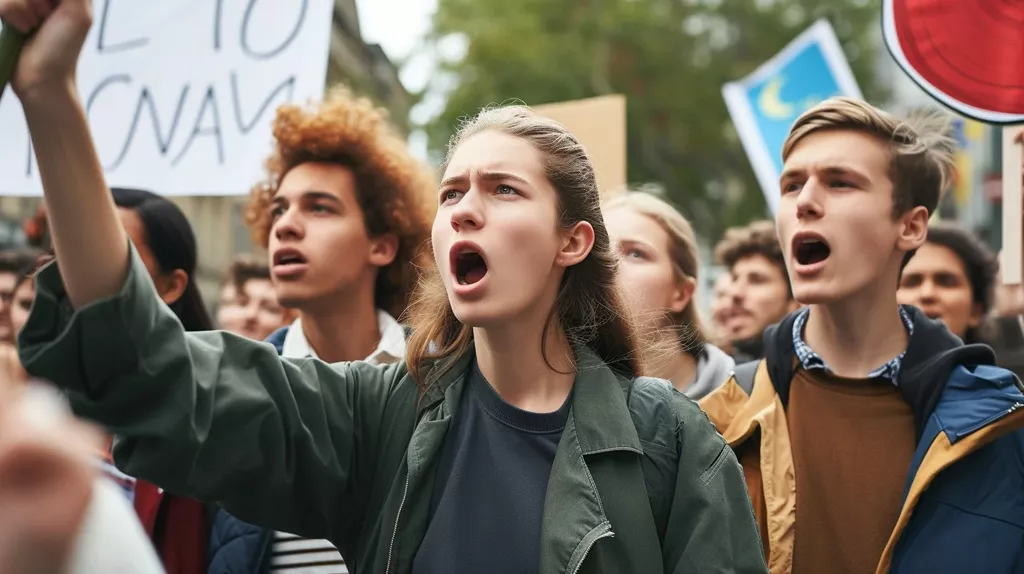
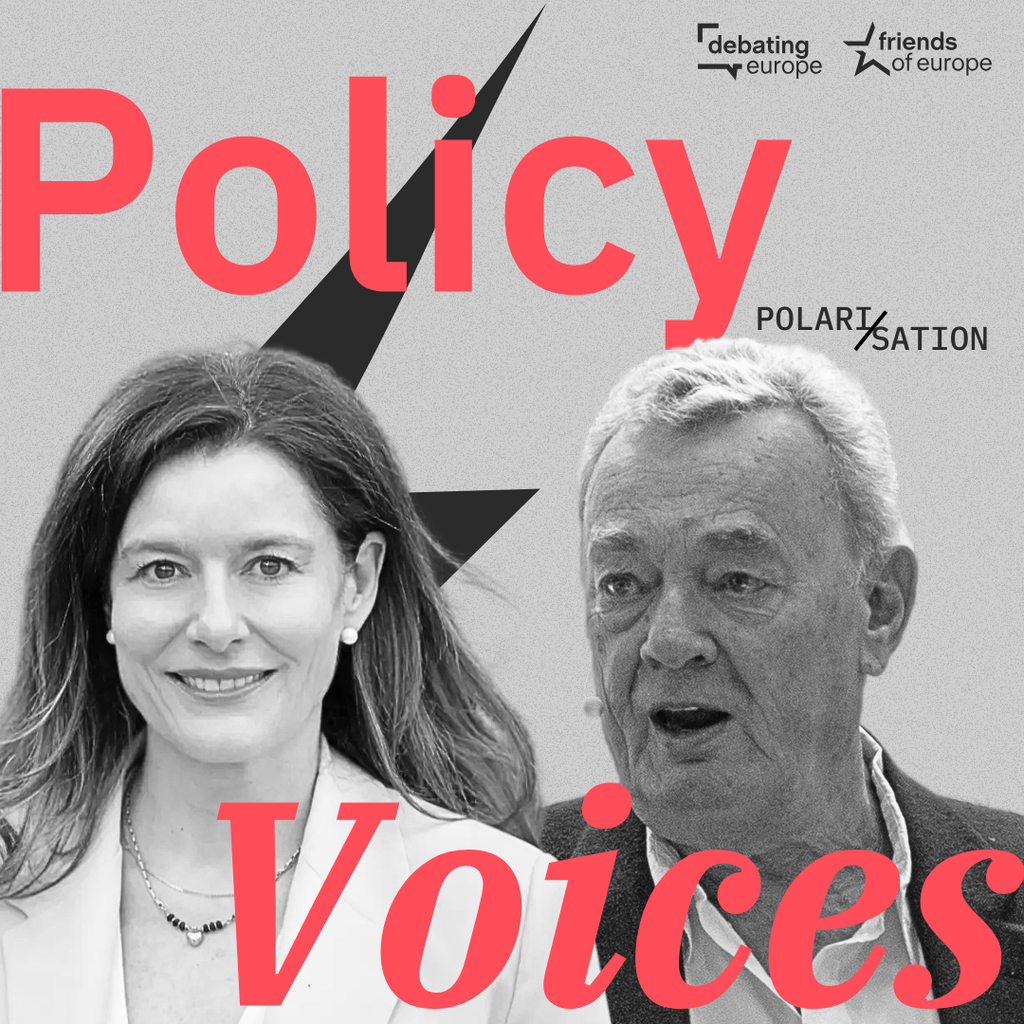
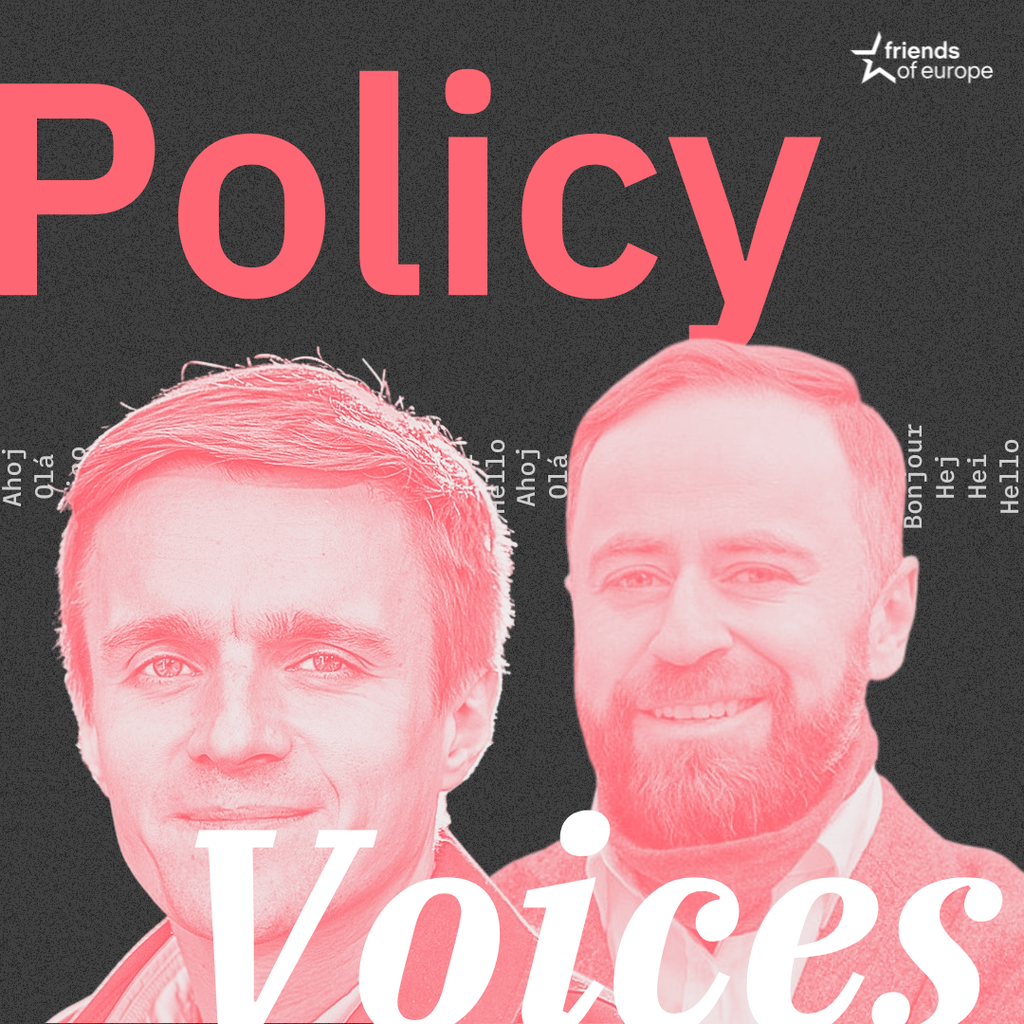
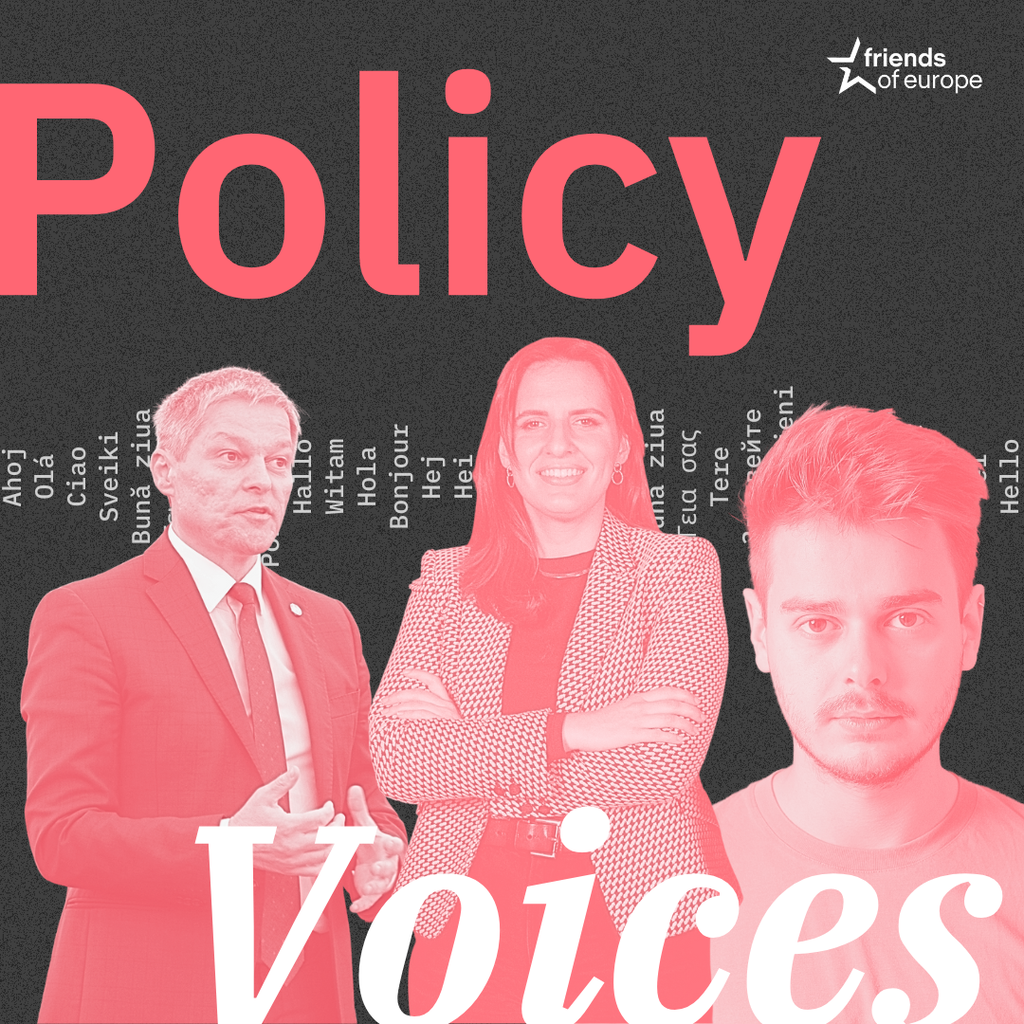
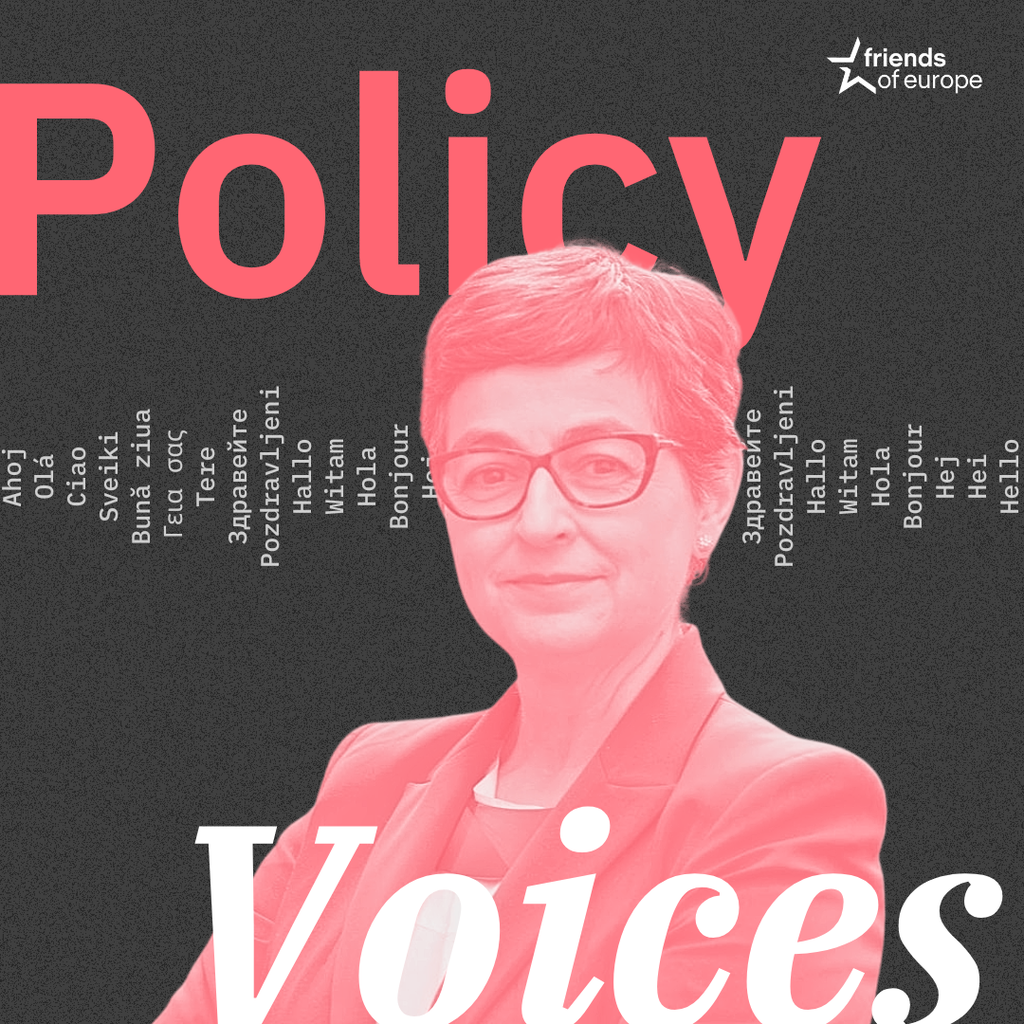
Stay informed
We use cookies and similar technologies to adjust your preferences, analyze traffic and measure the effectiveness of our campaigns. Learn more about our privacy policy.